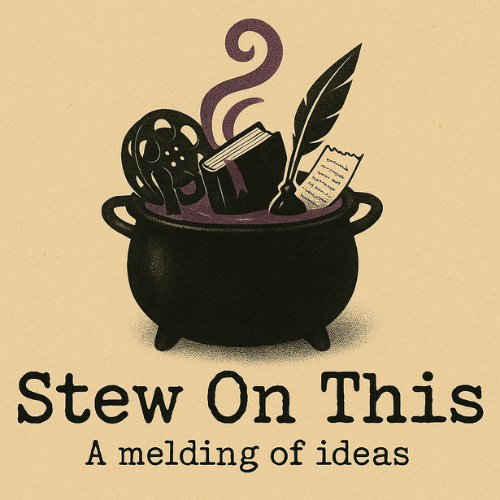
Generational Fear
Sometimes I walk around with deep feelings of fear. It's not something I welcome. Like all emotions, fear requires vigilance. It can sharpen our instincts, spark creativity, and awaken our will to survive in ways we never imagined. But fear can also distort our vision, turning life into a maze of anticipated traps rather than a wondrous journey.
The fear I feel today is rooted in sorrow. A sorrow for the civic losses our society has endured, so many of which have been normalized.
Memory has occupied much of my mind, too. It is our gateway to meaning. We remember so that we do not repeat. But we also remember selectively. Memory makes history a precarious endeavor. The victors write it, privileging their triumph over the stories of the trampled. This holds true around the world. Some societies try to remember the darkness, to learn from it. But just as often, we see attempts to edit history, to soften what it says about us and the narratives we cling to.
In my own life, I see American history as a textbook example of this paradox. Today, our national memory is in therapy. We're unearthing voices and stories long buried: Black, Indigenous, immigrant, queer, poor. And that recovery is forcing us to reckon with social constructs, malicious cultural myths, and policies that undermine our claims to exceptionalism. America, as it turns out, is not the pure light it sold itself as. It's a marvel of marketing, but the product beneath has proven distressingly cheap and alarmingly fragile. That is not easy to say as a born patriot, a lover of national history, despite my place in its shadows and afterthoughts, just because of my natural racial identity.
After the Civil War, America tried to rebuild the South in a more republican image. That vision included voting rights and public education, elevating Black Americans as lawmakers and offering services to poor Southerners of all backgrounds. But that vision was drowned in a wave of violence that would echo into the present.
On Easter Sunday in 1873, in Colfax, Louisiana, Black men assembled to defend a legally elected Reconstruction government. They were massacred by a white supremacist mob of over 300 armed men. Over 100 were killed, many after surrendering. The Supreme Court later erased the federal government's legal authority to prosecute the murderers. The message was clear: multiracial governance would not be tolerated, and hate could burn bright with Confederate memorabilia.
Two years later, Mississippi made that message into a model. The "Mississippi Plan" used organized terror—murder, beatings, armed patrols—to drive Black voters from the polls and reinstall White supremacists in power. It worked. Other states copied it, setting the stage for federal surrender in the coming presidential election. The ballot became a threat. Paramilitaries made it deadly.
In Virginia, a remarkable biracial coalition, the Readjusters, briefly gained power and invested in public schools, reduced the state debt, and protected voting rights for Black and impoverished White citizens. Even with the rising darkness of post-Civil War anger directed at Black southerners and White allies, there was a potential silver lining of what Reconstruction could become. But by 1883,, that silver lining turned into a dark storm cloud. The backlash came swiftly, tearing down integrated institutions and reimposing control through a post-planter Democratic machine that paired policy with racial violence.
Then came 1898. In Wilmington, North Carolina, a multiracial government wasn't merely outvoted. It was overthrown. Armed white supremacists torched a Black newspaper, massacred dozens, and drove Black and White Republican officials from office at gunpoint. It remains the only successful coup d'état in American history. Reconstruction's dream of interracial democracy and cross-class progress wasn't just defeated.
It was assassinated.
The brutality of this American-style reversal led to the migration of Black Southerners to Northern, Midwestern, and Western cities—a quiet exodus that further destabilized the fragile, feudalistic economies of the beautiful, but traumatized, flower that is the American South.
The Burden of History

Keep reading with a 7-day free trial
Subscribe to Stew on This to keep reading this post and get 7 days of free access to the full post archives.




